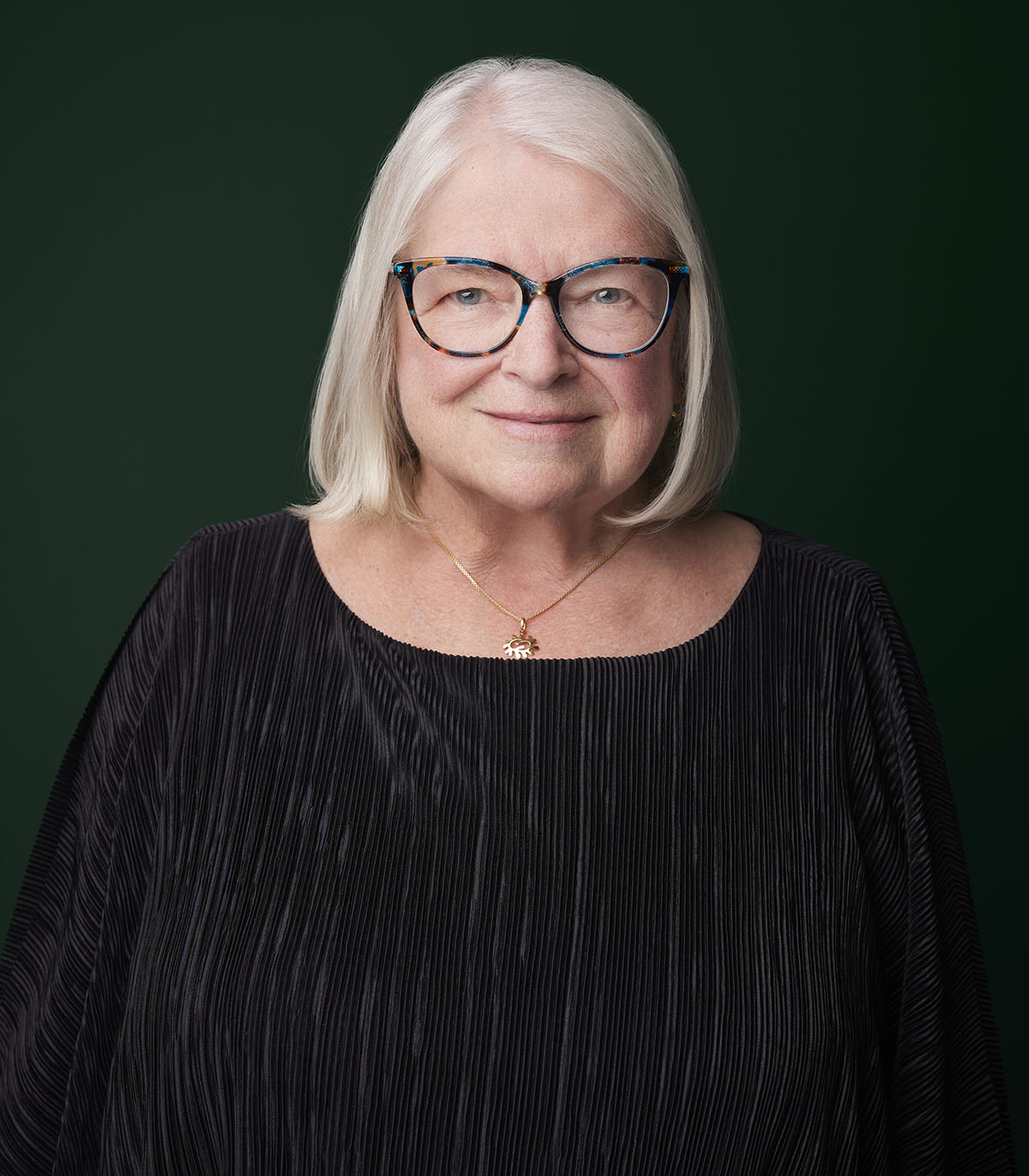2024 Distinguished Alumni Award: Linda Dianne Ogilvie
21 October 2024

Linda Dianne Ogilvie
As a young girl growing up in Ontario, there were two things Linda Dianne Ogilvie knew she wanted to do with her life: pursue a career in health sciences and work in international development.
By the time she retired from the Faculty of Nursing in 2014, the 2024 Distinguished Alumni Award winner had done both — and then some — leaving a legacy of nursing education that embraces teaching intercultural skills so that graduates can provide better health care.
An education in culture
Ogilvie completed a nursing diploma at the Hospital for Sick Children (SickKids) in Toronto and worked in the hospital’s pediatric intensive care unit initially and throughout her undergraduate degree at the University of Toronto. Working in a hospital during a time of cultural change in Canada, she spent time with children and families from many cultural backgrounds.
“I was a student nurse in Toronto in the late ‘60s and worked there in the early ‘70s when immigration policies were changed. When I first started, we had a lot of immigrants in Toronto from countries like Portugal and Italy,” she recalls. “By the time I left Toronto, immigration from other parts of the world was becoming more common. We also had patients who were Indigenous, because SickKids was a referral hospital for the North.”
Today, medical education programs routinely incorporate cultural knowledge and awareness into their courses, but Ogilvie believes nursing education was ahead of its time.
“There were some early nurses who did anthropology doctorates, and there was a whole movement in cross-cultural and transcultural nursing. I went to the U of A in 1983 and there was already a growing body of cultural research literature in nursing.”
In addition to the chance to work with different cultures in the hospital, Ogilvie’s diploma program at SickKids offered placements in an Indigenous hospital in northern Ontario. “Intercultural pieces of health were always part of my nursing education.”
After completing her BScN, Ogilvie realized a life-long dream of doing international development work by teaching nursing in Papua New Guinea through Canadian University Services Overseas (CUSO). The experience, which lasted three and a half years, changed her career path.
“I would have gone and done clinical nursing or whatever they gave me in Papua New Guinea, but I ended up teaching, which I liked,” she recalls. “I had been working in pediatric ICU and had wanted to become a clinical educator in ICU, but I never went back after Papua New Guinea.”
When she returned to Canada, Ogilvie spent two years working in community nursing. First, she worked with the Easter Seal Society in Northwestern Ontario and then, during her master’s degree, spent a summer working in St. Anthony at the northernmost tip of Newfoundland and a week working in a nursing station in Labrador. Ogilvie notes that she was offered the opportunity in Labrador specifically because of her primary care experience in Papua New Guinea.
A faculty on the verge
By the time Ogilvie arrived at the U of A Faculty of Nursing in 1983 for a tenure-track position, she had considerable knowledge and experience. In 1989, she took a leave to pursue a PhD in international intercultural education at the U of A’s Faculty of Education, which took her to her doctoral research in Nepal.
With her PhD completed, she returned in 1993 to a Faculty of Nursing on the cusp of change. Three international students were expected to arrive that fall, and knowing that previous international students had struggled, leadership looked to Ogilvie’s wealth of experience in intercultural nursing for guidance. Earlier, the University of Ghana approached the faculty for help establishing a graduate nursing program, but plans for that initiative were put on hold until faculty with international experience, who were on leave pursuing PhD’s, returned.
Ogilvie supervised the clinical component of the nursing graduate program that year to support the new international students. She also went to work preparing the faculty to internationalize by establishing an international committee, writing a paper about how to go about it, and organizing a workshop for interested tenure-track faculty. That workshop piqued the interest of then-dean of nursing Marnie Wood, who put her support behind the initiative.
Because the faculty had more PhD-prepared faculty than any other nursing school in Canada at the time, leadership decided to focus their efforts on international graduate education. Following some successful fundraising, the International Office, precursor to the Global Nursing Office, began.
Now, with more faculty with international experience available and the International Office in place, the faculty was able to work with what was then the University of Ghana Department of Nursing, with CIDA funding, to establish their own nursing graduate program, which continues to this day. Ogilvie gives substantial credit to Ghana for the success of the program.
“From their perspective, failure wasn't an option. The U of A Faculty of Nursing, the University of Ghana and the Ministry of Health all agreed that this had to happen, and so we had tremendous support from all of them,” recalls Ogilvie.
A lasting legacy
Oglivie shares that she hadn’t planned to stay at the U of A; she wanted to get university-level experience, then do more international work. However, working with Dean Wood, whom she credits with supporting a lot of initiatives that advanced the faculty, was a deciding factor in her remaining at the U of A. “She was a risk-taking dean and I think that had a profound effect on how the faculty has developed since then.”
Ogilvie was selected for a Distinguished Alumni Award because she has been instrumental in bringing a global perspective to the U of A’s Faculty of Nursing. For her, this recognition is also a reminder of being able to live the life she had imagined. “I guess for me, it’s a validation that you can have a non-traditional career and still succeed and do what you want to do.”